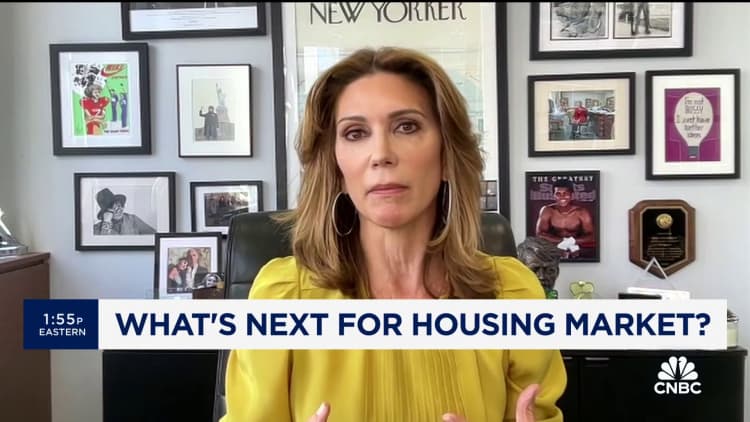Housing ‘affordability has just totally collapsed,’ economist says
10’000 Hours | Digitalvision | Getty Images
Housing costs are outpacing median household incomes in the U.S., further straining affordability.
Would-be homebuyers need to earn $113,520 a year to afford the typical house in the U.S. That is 35% more than what the typical household earns annually ($84,072), according to a new analysis by Redfin, a national real estate brokerage site.
“Since the pandemic, affordability has just totally collapsed,” said Chen Zhao, a senior economist at Redfin.
February 2021 was the last month when the typical household earned more money than they needed to afford the median home. They’ve been in a deficit ever since, Zhao said.
More from Personal Finance:
Top colleges expand financial aid awards to eliminate student loans
What you need to know about Social Security’s new overpayment policies
What car shoppers need to know
“That deficit hit a peak in October of 2023,” she added. “The reason why it hit a peak then is because that’s when mortgage rates peaked as well.”
Meanwhile, home prices also remained high because of an inventory crunch: the median sale price for a house was $412,778 in February of 2024, according to Redfin.
Affordability deficit narrowed in February
The average household fell short $29,448 to afford a home in February, according to Redfin. In October 2023, households were short by $40,810. At that time, buyers needed an average income of $120,500 to afford a home.
The affordability deficit narrowed because rates have been on a consistent decline since the last peak in October, according to Zhao. The average 30-year fixed mortgage rate hit 8% for the first time since 2000.
“It’s been a pretty big change since last October,” Zhao said.
Other reasons like seasonal pricing may be reflected, as home prices tend to decline in the winter months, said Jeff Ostrowski, a housing analyst at Bankrate.
However, potential buyers are still on the sidelines, said Veronica Fuentes, a certified financial planner at Northwestern Mutual.
“They’re either holding off or they’re taking their time,” she said.
Recent layoffs in the technology industry have affected some of her clients’ attitudes, Fuentes explained. While her clients may not be on the chopping block, seeing their co-workers get laid off has made many of them more cautious.
“If you were laid off, could you still afford this mortgage? Do you have six months [of] emergency savings or even a year emergency savings? … Can you still afford the mortgage for six months if you have no job?” Fuentes said.

Navigating high costs in the housing market
In a time when a potential buyer needs to earn about $114,000 a year to afford a median-priced house in the U.S., a starter home would make the most sense for price-sensitive buyers, experts say.
A potential buyer should make about $76,000 a year to afford a starter home, or those among the one-third of the less expensive and smallest homes, according to Redfin.
While ideal, starter homes are hard to come by. To that point, home…
Read More: Housing ‘affordability has just totally collapsed,’ economist says
